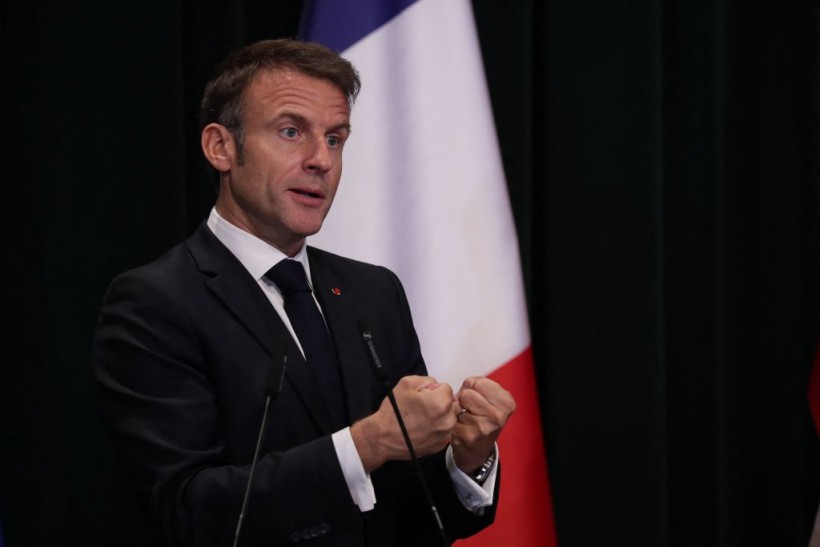France passed a new tough immigration law that highlighted President Emmanuel Macron's parliamentary majority and how it is showing signs of division.
Lawmakers gave their final approval of the contested bill on Tuesday, handing a policy victory to Macron. It is a compromise between the president's party and the conservative opposition and it illustrates the rightward shift in politics in much of Europe.
France's New Immigration Law

The French government passed a tough new immigration law that shows the cracks in President Emmanuel Macron's parliamentary majority.
In a statement after the vote, Interior Minister Gerald Darmanin said that strict measures are necessary in today's time. He said, "It's not by holding your nose in central Paris that you can fix the problems of the French in the rest of the country."
The official expressed relief with the passage of the immigration bill with the votes of his centrist coalition and the conservatives. It did not have to rely on the surprise endorsement of far-right lawmakers, whose support had resulted in embarrassment in the presidential camp.
The French government initially said that the bill would be a carrot-and-stick legislation that would make it much easier for migrants who are working in sectors that lack labor to get a residency permit. However, it would also make it easier for authorities to expel illegal migrants from the country, as per Reuters.
The government agreed to tone down the residency permit measures while delaying migrants' access to welfare benefits in order to gain support from the right. The benefits include benefits for children and housing allowances and the delay would amount to several years.
The people of France have long prided themselves on having one of the most generous welfare systems worldwide. The country grants payments even to foreign students, helps them pay rent, or care for their children with means-tested monthly contributions of up to a few hundred euros.
But more recently, the far right and conservatives have argued that these benefits should be reserved for French people only. The Tuesday deal would delay access to housing benefits for unemployed non-EU migrants by five years.
Read Also: German Chancellor Olaf Scholz Unveils Details of 2024 Budget Following Detrimental Court Ruling
Paving the Road for the Opposition
Following the passing of the law, Health Minister Aurelien Rousseau offered his resignation in protest. However, Prime Minister Elisabeth Borne did not say whether or not she would accept Rousseau's resignation, according to The Guardian.
Scores of MPs within Macron's centrist grouping voted against the immigration bill or abstained from the vote. A key figure on the left of the president's party, Sacha Houlie, voted against it. She was the one who led the special committee on the law.
The compromise to pass the immigration bill put Macron in an extremely uncomfortable position between a brewing internal revolt and what French news media have described as a "kiss of death" from the far-right National Rally party and its leader, Marine Le Pen.
A professor of political science at the University of Nice, Vincent Martigny said that when Macron was elected in 2022, he said that he would not forget the people who supported him because they wanted to oppose Le Pen. Martigny noted that now, the president is doing the opposite and paving the way for the opposition leader, said the New York Times.
Related Article: Serbian President Aleksander Vucic Declares Victory in Elections as Ruling SNS Party Tightens Political Grip








